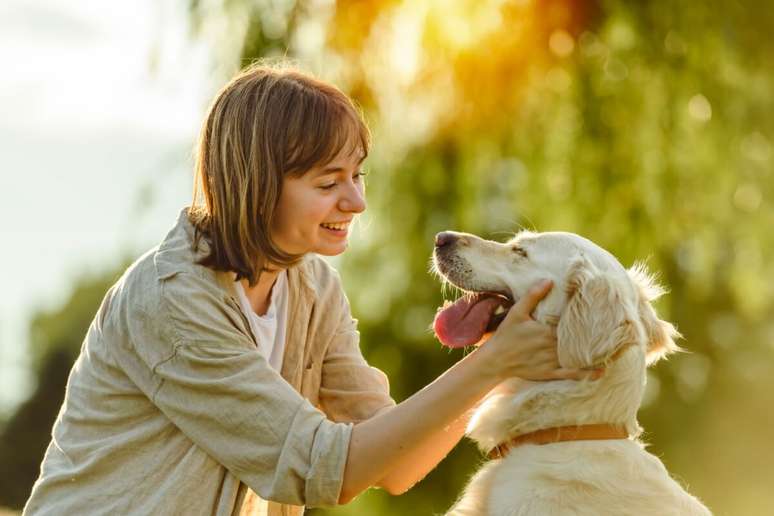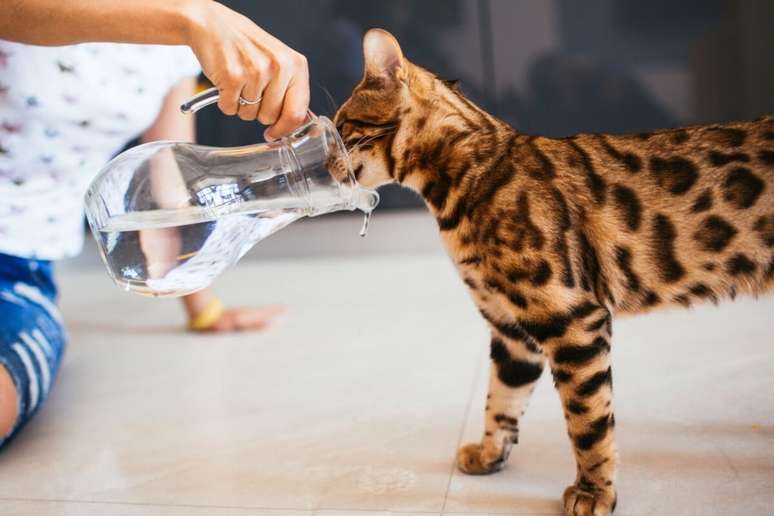See measures that help prevent health problems and guarantee a safer summer
In summer, high temperatures increase the health risks of petsmaking it essential to double the care of this period of the year. Excessive heat can cause dehydration, paw burns, insolation and even heat strokes, which can be fatal. In addition, parasites, such as fleas and ticks, are higher during this season, which require further attention with hygiene and the protection of animals.
Knowing this, we talked to the teachers of Veterinary Medicine of Unisociesc, Barbara De Freitas and Leonardo Vieira, who share 8 precious tips to ensure you the well -being and safety of your animal on the hottest days. Check!
1. Extra hydration
Make sure your animal has constant access to Freshwater. The heat can quickly cause dehydration, then keep the bowl of water always full. If possible, spread more vases in strategic places in the house to encourage consumption. It is also worth putting ice stones in the water.
In addition, it is possible to create iceboards, freezing fruits that the animal is already used to eat or use snacks that are part of its diet. Do not offer icy -to -sugar iclets. An interesting strategy is to put ice pebbles in the water all day.
2. Tour sometimes with less sun
Avoid walking with yours PET During the hottest hours of the day, especially in places exposed to the direct sun, such as sidewalks and asphalt. If the tutor puts his foot or palm on the floor and feels very hot, the animal will feel the same and may have burns on the legs, something in the common in summer.
It is not indicated to put the shoes in petsSince this can limit mobility and cause injuries. The ideal is to choose colder times for walks and search for trees and plays, always giving priority to the animal’s thermal comfort.
3. Solar protection and fresh environments
Light or short -skinned animals can suffer from sunburn in summer. See the veterinarian on the use of specific sun protection TO petsEspecially for sensitive areas such as nose and ears. For some species, the use of the protector is highly recommended.
However, the most important thing is to ensure that yours PET Have access to fresh and shaded areas to rest during the hot days. Avoid leaving it in the sun for long periods. For animals living in apartments, the use of air conditioning or fans is safe and can be an excellent alternative to keep them at ease.
4. Frese and Schezione bathroom
From regular bathrooms in yours PET to keep it fresh. If the The bathroom is given at homeUse specific products for pets such as shampoo and soaps for humans can be harmful. Plan the coat regularly to remove dead hair and prevent skin problems. This also improves air circulation and helps natural cooling. For a few races, it is indicated to cut the hair a little, while for others the grooming is not recommended. Consult a veterinarian to find out what is best for your pet.

5. Attention to the signs of overheating
Dogs and cats regulate their temperature mainly breathing. Be aware of signs such as breathing difficulties, excessive salivation, very red or pale gums, weakness and vomiting. If you notice these symptoms, immediately look for a veterinarian.
Observe the behavior of animal It is also an effective way to monitor body temperature. If it is too hot, they will make panting and salively salivial. Brachicefalic races such as Pug, Shih Tzu, Bulldog, Lhasa APSO, Boxer and Persian cats require additional attention.
6. Play with water
If yours PET Like water and you have room for this, offer a swimming pool or a basin with water toys to keep it fresh and entertained. If you use the home swimming pool, always supervise to ensure animal’s safety. Even the baths of the pipes in the courtyard can be fun.
In the apartments, a small bowl of fresh water and toys can help refresh dogs and cats. In addition, there are cold rugs and cushions on the market, which are excellent alternatives for those who cannot invest in water games.
7. Parasite control
The maintenance of deworming and vaccination is essential throughout the year, but in the summer care should be doubled. The station promotes the proliferation of parasites and insects such as fleas and ticks. Use the products recommended by veterinarian For prevention and be aware of common heat diseases such as viruses, gastroenteritis and allergic dermatitis. As with humans, this is a period of the year in which the risk of infections increases.
8. Prepare trips and tours
If you usually travel or take long tours with yours PETTake care of your safety with appropriate transport boxes. In the case of bus or planes travel, check the rules of the animal transport companies and the requirement of the health certificate. For car trips, ensure the safety of PET And to make frequent stops so you can drink water, walk and do its needs.
Some animals may feel bad and in this case the vet may recommend specific medicines. Never leave the animal alone in the car, even for a few minutes. Before traveling, make sure the vaccines are updated. If the family chooses to travel without the animal, it organizes the best way to make it safe and well cared for in your environment.
By Genara Rigotti
Source: Terra
Ben Stock is a lifestyle journalist and author at Gossipify. He writes about topics such as health, wellness, travel, food and home decor. He provides practical advice and inspiration to improve well-being, keeps readers up to date with latest lifestyle news and trends, known for his engaging writing style, in-depth analysis and unique perspectives.








